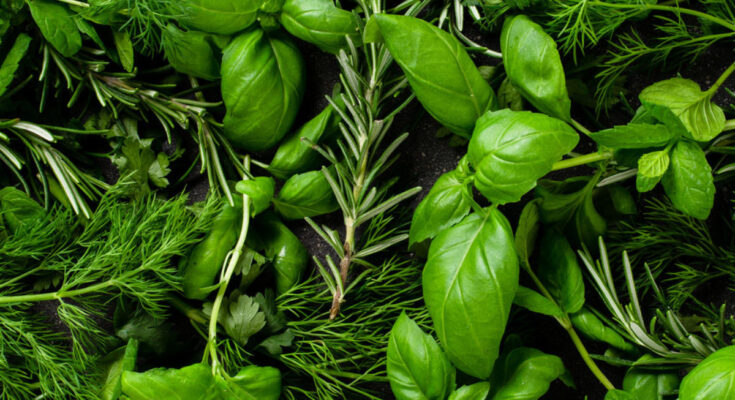For thousands of years, people have used herbs to cure various illnesses. Some of these herbs can promote mental acuity and cognitive performance.
Your brain needs help to work at its peak since it is continuously digesting, evaluating, deciding, and reacting. Herbs for memory and the brain can be helpful if you’re looking to fight mental tiredness at the end of a long day or maintain cognitive function.
This article looks at some herbs that can support clarity and cognitive functions.
1. Sage
Source: unsplash.com
Sage has a long history of use as a complementary medicine to boost memory and cognitive function. It is one of the herbs that help with mental clarity. The herb contains compounds that might benefit the brain and cognitive health. The herb is recognized for its strong aroma and ability to enhance cognitive function.
When looking where to buy smokable herbs, you can find organic herbal blends with sage, Damiana, and passionflowers at VaporBrothers.com. They only add the ingredients listed on the label to the herbs without processing or additives.
2. Ginkgo Biloba
Hardy Ginkgo trees, also known as Ginkgo biloba, are special in that they are the oldest still-existing species of trees on the earth. This popular herb can support mental clarity and cognitive function because of its ability to increase blood flow and brain oxygenation.
This plant extract supports the body in several ways, including preserving healthy brain function. It helps with cognitive performance. Evidence supports its use to boost cognitive abilities, including recall, recognition, memory, attention, focus, mood, and energy levels,
3. Rosemary
Source: unsplash.com
This is a common herb used to stimulate the brain. It has been traditionally used in the medical field for its therapeutic benefits. The smokable herb is rich in antioxidant and inflammatory properties that can enhance the brain’s health. Some individuals use it as a natural medicine to boost cognitive performance.
Several studies have shown that rosemary may benefit cognitive function and mental acuity. For example, inhaling rosemary essential oil may enhance memory and cognitive performance in healthy individuals. Like peppermint, the scent of rosemary essential oil may enhance mental function. The rosemary extract might also help people with Alzheimer’s disease with cognitive function.
4. Lemon Balm
Melisa Officinalis, or lemon balm, has been historically used for its relaxing and soothing properties. It is a perennial herb belonging to the mint family. The herb has a lemon-like aroma and has been used to ease anxiety and insomnia.
According to some reports, smokable lemon balm can help boost cognitive function and mental clarity. It also shows a significant improvement in cognitive function for individuals with Alzheimer’s.
5. Indian Ginseng
Source: unsplash.com
There is a possibility of using Indian ginseng to support cognitive function. This is a plant native to eastern Asia that has been used in traditional Ayurvedic medicine for many years. It provides several health benefits, such as lowering stress and anxiety, enhancing sleep, and boosting energy levels.
Ashwagandha may have potential cognitive advantages, such as enhancing memory and attention and lowering the risk of cognitive decline brought on by aging. For example, ginseng extracts enhance memory and cognitive performance in a group of healthy middle-aged people. It can also improve cognitive performance in people with Alzheimer’s.
You can prepare a cup of Ashwagandha tea or smoke the herb to benefit from its health properties. The plant prevents the development of beta-amyloid plaques, clumps of protein that form between nerve cells.
6. Tulsi
Tulsi is the most reliable herb in the Ayurvedic plant cabinet regarding herbs that support mental clarity. It is also known as Holy Basil, Queen of the Herbs. It decreases cortisol levels and affects brain neurochemistry because of its antioxidant characteristics.
Tulsi is prominently positioned at entranceways and is used to bless homes all around India. When used regularly, it can assist the nervous system’s operation, mental clarity, memory, and nervous tension.
Smoking dry Tulsi leaves promotes mental relaxation. You won’t ever become hooked on smoking Tulsi leaves, which is a good thing. Also, the habit keeps your environment clean and ensures that the adjacent residents are not added to the list of passive smokers.
7. Rhodiola Rosea
Rhodiola Rosea thrives in cold climates worldwide, including Europe, Asia, and North America. It is also known as “golden root” or “arctic root.” The herb has long been used in herbal medicine to enhance physical and mental function, especially in stressed or fatigued patients.
According to reports, Rhodiola Rosea offers advantages for cognitive processes, including memory, learning, and attention. You can use Rhodiola Rosea to promote cognitive function and mental clarity. It also has potential antidepressant and anti-anxiety properties.
8. Bacopa Monnieri
Source: unsplash.com
Ayurvedic physicians link low energy levels caused by stress with difficulty focusing. Bacopa is one of the most well-known herbs that traditionally support memory, mood, and attention, reducing stress and boosting vitality.
This herb is utilized to promote cognition, memory, and learning. It is popular in Ayurvedic. Bacopa helps the brain assimilate information and improve memory. It functions by making some neurotransmitters more readily available in the brain.
Bacopa Monnieri has cognitive-improving benefits because bacosides and triterpenoid saponins have neuroprotective and cognitive-improving qualities. It can promote the actions of essential neurotransmitters that relax the central nervous system and assist mood balance.
Bottom line
Several herbs and spices may enhance the health of your brain. They have been studied for their safety and effectiveness in terms of mental clarity and cognitive function. Speak with a healthcare professional before using smokable herbs because they can interact with medications and cause potential side effects. Also, be aware that smoking the substance can sometimes have harmful effects on your health. A healthcare provider can advise you on the most effective action for your needs.




